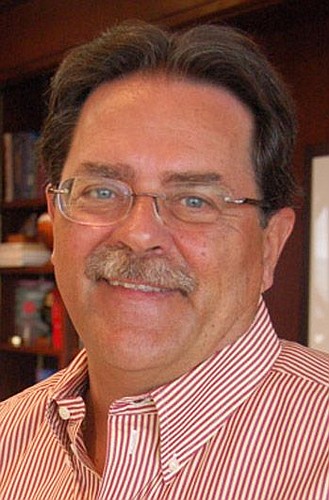
Amid a frenzy of merger speculation this week, CSX Corp. reported strong third-quarter earnings and expressed confidence that business trends continue to look promising.
The Jacksonville-based railroad company late Tuesday reported net income of 51 cents a share, up from 45 cents in the third quarter of 2013, with revenue growing 8 percent to $3.22 billion.
CSX’s earnings beat the average forecast of 48 cents by analysts surveyed by Thomson Financial.
“We’re just really pleased,” Chairman, President and CEO Michael Ward said in an interview Wednesday.
“We’re excited about where we’re headed,” he said.
Ward and other CSX officials won’t discuss rumors of a possible big railroad merger, which began over the weekend when The Wall Street Journal reported that CSX rebuffed a merger proposal from Calgary-based Canadian Pacific Railway Ltd.
That report sent CSX’s stock up as much as $4.15 on Monday to a record high of $34.09, and started speculation about other possible mergers of large U.S. and Canadian railroads.
During CSX’s quarterly conference call with analysts Wednesday morning, Ward was asked — without talking specifically about CSX — if consolidation in the industry could solve problems of freight capacity and service levels.
Ward said CSX and other railroads are taking steps to increase their capacity.
“I think those will produce the capacity needed to move America’s freight,” he said.
He also doesn’t think mergers will improve railroads’ level of service.
“You might actually see a step back. As you know, in past mergers, there have been severe service disruptions after one of those transactions,” he said.
Ward also said the U.S. Surface Transportation Board has been closely monitoring service levels in the railroad business because of concerns that the industry can’t keep up with growing volumes. That could make the regulatory agency reluctant to approve a merger.
“I might speculate that they would be very cautious about this because in the past they have created disruptions and the industry is already somewhat slowed down by this tremendous growth in volumes,” he said.
“Regulators would be skeptical. That would be my speculation but it probably would be better to ask them.”
Ward told the Daily Record that CSX was planning for a 2 percent to 3 percent increase in freight volume on its system this year but after severe winter weather slowed down business, volumes surged by 8 percent in the second quarter and 7 percent in the third quarter. That made it difficult for the railroad to keep up with demand.
“We as an industry don’t do surges well,” he said. “We have long lead times.”
Ward said it takes six to nine months to train new engineers who are hired to handle the growth, and the company has not been able to buy new locomotives fast enough because the manufacturers had not anticipated the large demand from the industry for new equipment.
Ward expects CSX’s capacity to improve next year as volumes continue to grow, and he is confident that the growth will continue. For example, he expects automobile shipments to keep rising as car companies increase production to replace aging vehicles.
Shipments of building materials are also likely to increase. Ward said U.S. housing starts are projected to rise by 13 percent this year to about 1.05 million, but there are about 1.5 million starts in a “normalized” year.
“So there is a lot of room for that to grow,” he said.
Ward said the only place he has concern is the export coal business.
Reduced coal demand, in the U.S. and abroad, has reduced CSX’s revenue from coal shipments by about $800 million to $1 billion a year. That loss of revenue has slowed down the company on its track to achieve an operating ratio — expenses divided by revenue — of 65 percent.
“If we hadn’t had that, we’d probably be close to that mid-60s goal,” Ward said.
CSX’s third-quarter operating ratio did improve to 69.7 percent, down from 71.9 percent a year earlier.
CSX is Jacksonville’s largest company, with revenue projected to exceed $12 billion this year. The company employs more than 31,000 people throughout its system in the eastern U.S., including 3,500 to 4,000 jobs in Jacksonville, many of which are high-paying jobs, Ward said.
Merger talk surrounding CSX could make some people nervous, but Ward sees a long future for the company in Jacksonville.
“We think that, if anything, we’ll probably grow that employee base,” he said.
“We love Jacksonville. We’re going to be here.”
(904) 356-2466